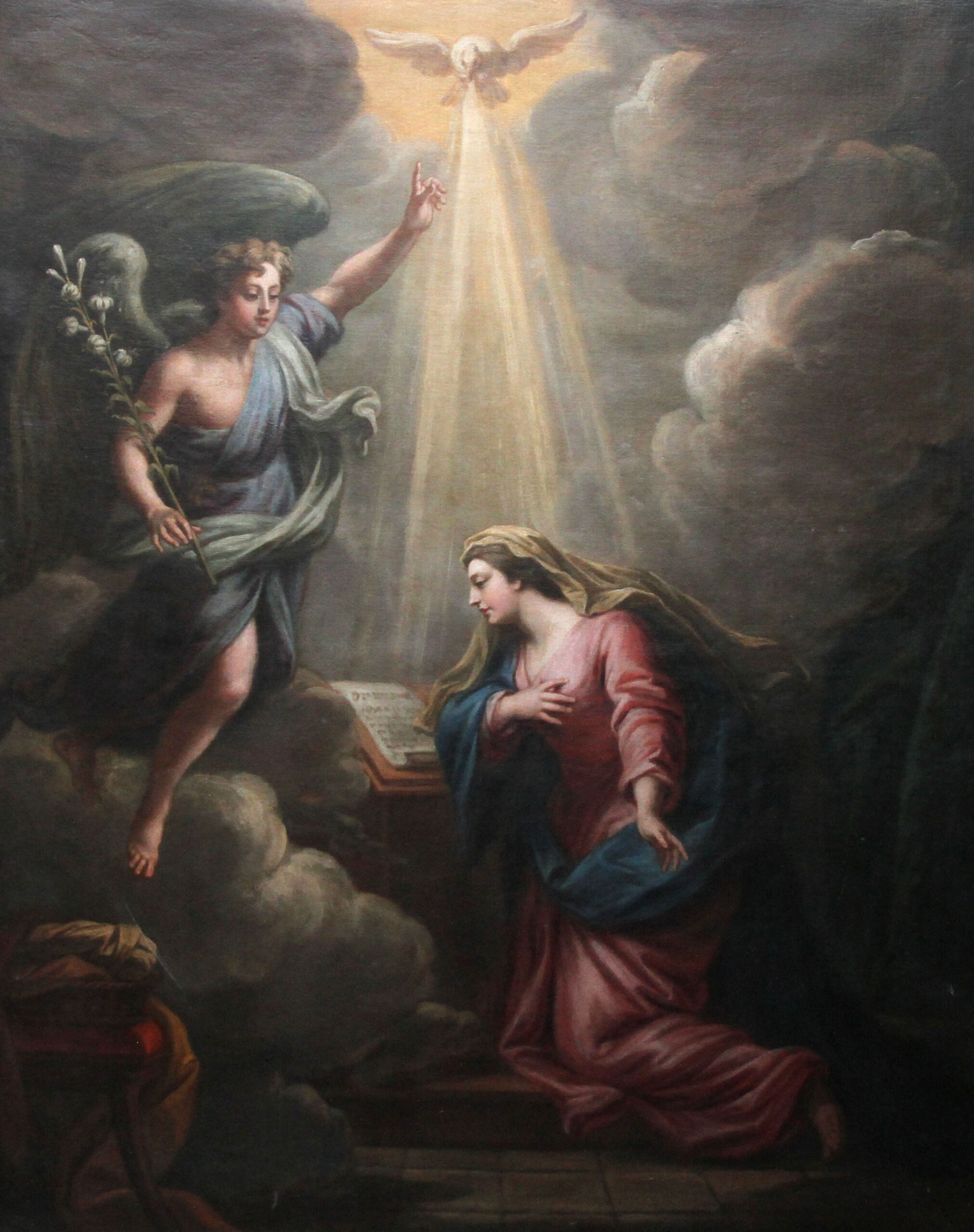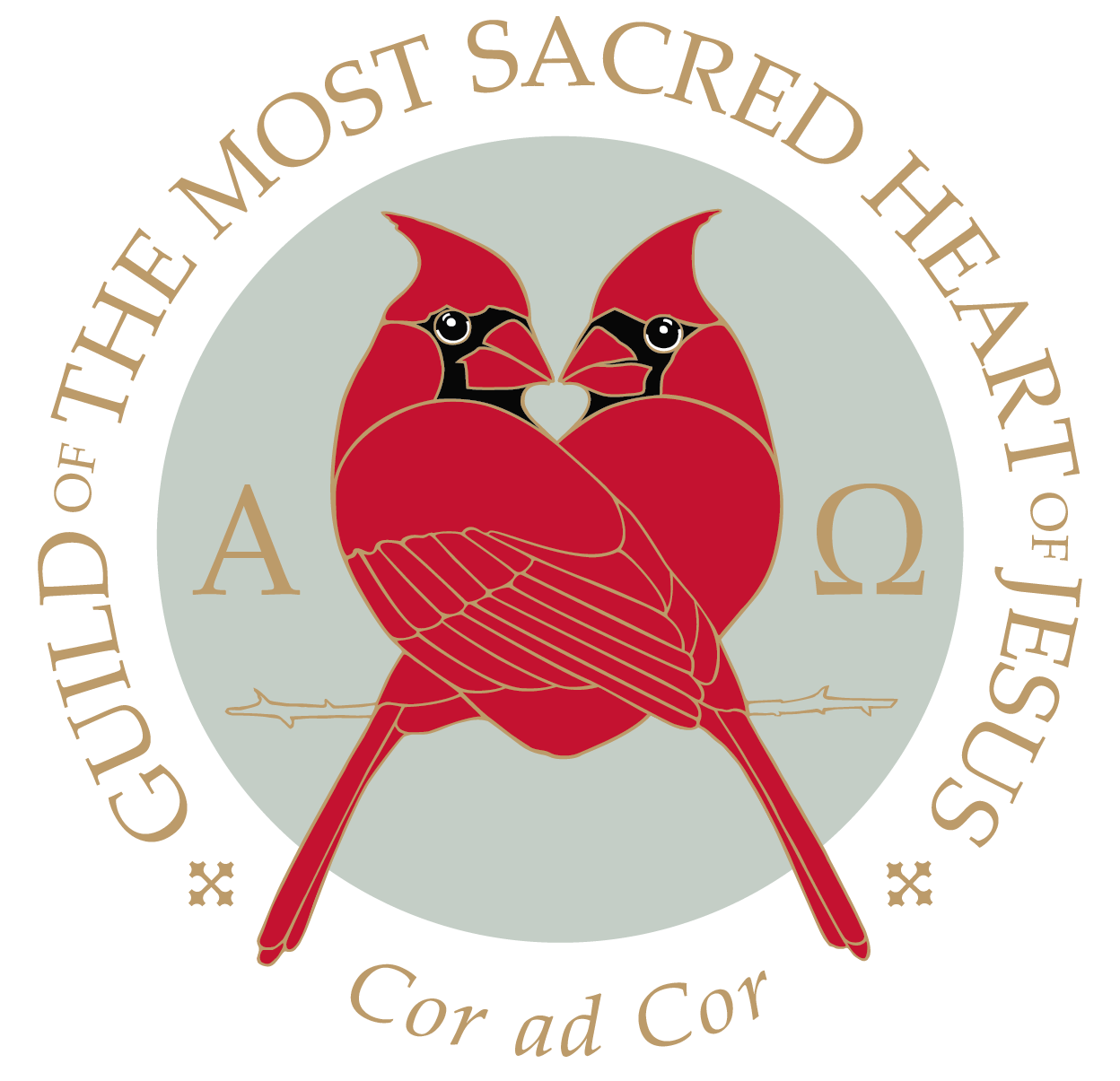
|
The Father is greater than I. Hidden within the Gospel text for Pentecost is one of the greatest challenges that a preacher might encounter. For that reason, I very much doubt whether you have heard any sermons on John 14:28. At least, not recently. The Father is greater than I, Scripture says. If our faith proclaims that Our Lord is “consubstantial with the Father,” the same essence, the same substance as God, how, then, can the Lord say that, “The Father is greater than I?” What do we do with this seemingly Scriptural conundrum? Do we quietly ignore this Scripture, set it aside, and pretend it does not exist?
A better way is to inhabit the complexity, to contemplate what it must mean for the Lord to say that the Father is greater than I. Of course it is not possible for the Church to be wrong in saying that the Second Person of the Trinity is consubstantial with the Father.
In contemplating this passage, we come to a greater understanding of who the Lord truly is, which is precisely the work of the Holy Spirit given to us. The answer to this conundrum was given at the Council of Chalcedon convened in A.D. 451 which dealt with, among other things, the two natures of Christ. He is One Divine Person with two natures, divine and human. These two natures are logically ordered, one to the other. The Lord is not schizophrenic in the nature with these two natures mixed up. His human nature is not parasitic with his divine nature.
For the Lord to have a real human nature and not a symbol or some kind of fake or pretend human nature, he needs to have a body and a soul; a body and a soul.
Christ’s human body and Christ’s human soul are created. They are not uncreated. That is to say, there was a time when they did not exist. And the creation of Christ’s human body and Christ’s human soul was an action of the most Holy Trinity in concert at the moment of our Lady’s fiat.
At that moment in time, the Lord’s human body and His human soul are created. They come into existence. They did not pre-exist. There wasn’t a pre-existing and holy human nature before Our Lord came. Instead, it was created for Him, or rather, it was created for us.
From that moment of the creation of Christ as human body and soul, it was united to His Divine, as Son. The Lord’s essential relationship to the Father from all eternity is as Son. He is the only begotten Son of the Father from all eternity. And the Father is in the process of begetting the Son, and the Son is in the process of being begotten. The Son and the Father are pure spirit. They are not material at all. That is why we can be bold to say that Christ’s human body and His human soul are created, because there was a time when they were not.
In that moment of time, a time when Heaven and Earth stood still to hear Our Lady’s response, the immaterial Son of the Father created a body and soul in order to redeem us. If the vehicle of redemption was already present, then the evil one would know about it. This was the audacious plan of God, the mystery of God’s action: to redeem us by creating the means through which God Himself could suffer. God, in His nature, in His essence, Father, Son and Holy Spirit, cannot suffer. Only by taking on human nature is it possible for Him to suffer and die.
This created nature then, His human nature that God begot, is perfect without spot or sin and has no inclination towards evil whatsoever. Because it is created, this nature is subordinate to its creator. That is logical. You cannot be above the one who made you. In that sense, and in that sense alone, it can be said that the Father is greater than the Son, in His human nature, not in His divine nature.
The Son, in His human nature, is inferior to the Father. The Son, in His human nature, is also inferior to the Holy Spirit. And the Son, in His human nature, is furthermore inferior to the Son in His divine nature. Christ’s human nature is subordinate to His divine nature. So whilst Christ says, The Father is greater than I, he could have said, The Son is greater than I, or, The Holy Spirit is greater than I, because each Person of the Trinity is greater than His human nature.
Other parts of Scripture support this understanding. After the Lord has risen from the dead He says to Mary Magdalene, Do not cling onto Me, because I have not ascended to my Father; but tell the brethren that I am going to my God and your God.'” How can He say that? In His human nature, He can say that. In His human nature, He has a relationship to His divine nature as God, perfectly ordered.
When the Rich Young Man calls Our Lord Good Teacher, He replies, “Why would you call me good? No one is good except God alone.” Speaking in His human nature, the Lord’s words make perfect sense. On the Cross itself, what does Our Lord cry out? My God, My God, why have you forsaken me? If the Son was not inferior to the Father, in His human nature, that cry from the Cross would make no sense whatsoever. When we understand the concept of the Lord’s two natures, these Scripture passages reveal the two natures of Christ.
Returning to John 14:28, the Lord speaks hypothetically, You would have rejoiced that I go to the Father, because the Father is greater than I. This provides more evidence that Our Lord has both a human and a divine nature. Why would the Apostles rejoice that He is going to the Father? He is taking that human nature to the bosom of the Father, the heart of God Himself. Because of that, we are able to transcend our own nature by being incorporated in Christ. We also are able to go to the heart of God, in fact, our destination. Pentecost reveals that way in which this incorporation happens.
Human nature cannot be complete unless it has been redeemed and given up to God. The human soul must become a dwelling place for the Holy Spirit, the Paraclete. You might, therefore, have some cause for complaints to God, because you were made incomplete.
Many of you know that I now have a beast living in my house. The beast who lives in my house, unlike me, cannot sin. The beast living in my house, my chocolate lab Woodstock, will always please God whatever he does. He cannot sin. But he has no capacity for God; he has no need for grace. And he has no need for redemption, either. But in that ineptitude and simplicity, he also cannot share God’s light. God cannot share His own nature and essence with him for all eternity.
You see, the destiny for all that God has made, all of creation, all matter, is to be recreated anew. Around Our Lady is the pivot of the new creation that God desires to bring about. We human beings are not destined to shrug off our body like a hermit crab might discard his shell. Our body is not something to be broken free of like a prison. It is something that will also be redeemed, transformed, because as a body and soul, we shall see God.
Our life can sometimes look like a tug-of-war between Heaven and Earth, because of our nature as body and soul. Part of us desires to soar to heights, and part of us is quite comfortable like my beast, Woodstock, slinking around in the muck. But it is impossible for us, as humans, to be ourselves without the dew of the Holy Spirit, without that incorporation into Christ, which is possible by the descent of the Holy Spirit into our lives.
Unless He descends upon us, we cannot be who we are meant to be. For those who do not have faith, no matter what they do, no matter how wealthy they become, they are always unhappy. At the root, at the base, there is something unsatisfying, because they have not realized their need for God, and that need will not be satisfied through material pleasure or the things of this world.
All the things that God has made, He has made in order for humans to get to Heaven. Everything about the created world, all of it points to Christ. And as such, our responsibility is to recognize this life as the time for working out of that great destiny, what it is to be made in the image of God.
Of course, we see this in our Lord, with His human nature. The Holy Spirit descends upon Our Lord at His Baptism. Now, unless he did not have a created human nature, that would not make any sense at all. His Spirit is not descending upon Christ, because He is divine. He descends upon Christ because he is human and divine, the two together. Christ’s divinized humanity is also our destiny in Christ. And the operation of that destiny happens through the working of the Holy Spirit in Christ.
PRAY
